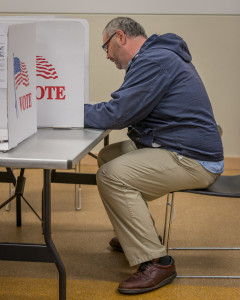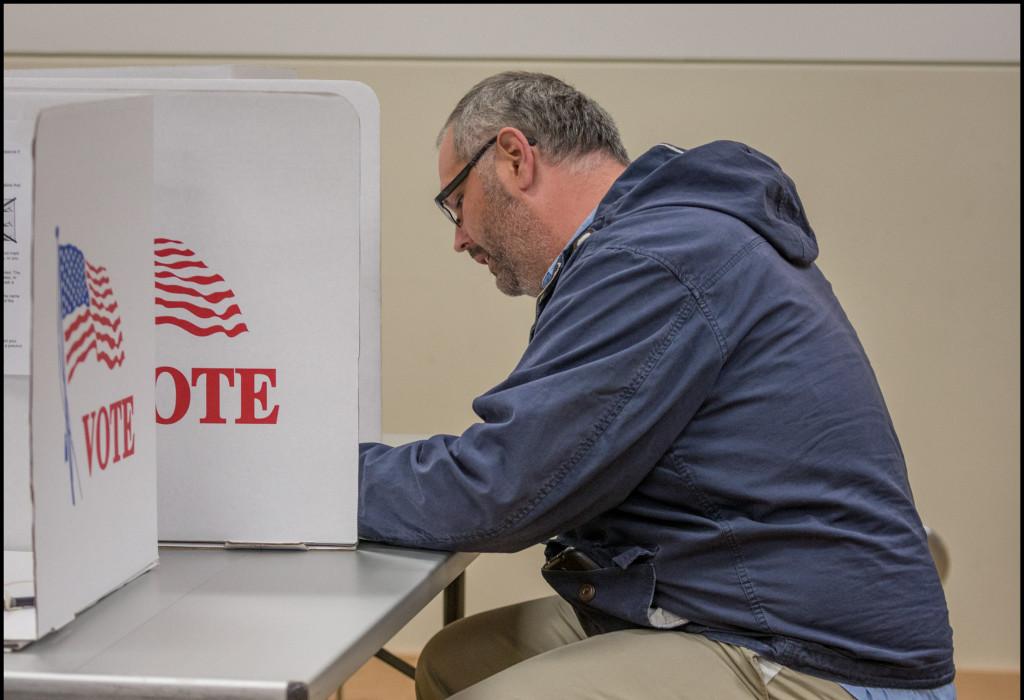The voters of the Grinnell-Newburg School District have spoken—new schools are not in Grinnell’s near future. Tuesday’s referendum, which would have allowed the school district to take out bonds to finance the building of new school buildings, failed by a margin of 60 percent to 40 percent.
Though the school district was disappointed in the outcome of the referendum, they wanted to thank their volunteers and are planning for the future.
“It’s a lot of work on behalf of the community and the district, but then also the voters have spoken and we respect those opinions and now it’s kind of back to the drawing board to see kind of what those root causes are,” said Superintendent Todd Abrahamson. “We really need to reach out now to our patrons, whether that’s through town hall meetings or a survey, to see what those varying opinions are and then to kind of analyze those root causes and then take it from there on what next steps would be.”
As the school district moves forward, according to Abrahamson, one of their goals is to get together a diverse task force to look at future options.
“We will solicit a ton of input. We will really campaign for people to be on this task force so we can make sure people are heard. And then like I’ve said before, sometimes a lot of people have a lot of things to offer but do not like to be on committees, so how do you get that information from those individuals? So to me that’s what we really need to focus on as well,” Abrahamson said.

Local attorney Dale Lamb ’78 said that a variety of opinions was lacking among a task force which was formed over two years ago to assess the school district’s options. Lamb was a member of that task force, but produced campaign materials opposing the referendum.
“That’s what’s hard in a small community. You can try real hard, trying to formulate groups that are going to put this together but once it’s kind of clear that it’s going a direction, or if that’s what it looks like at the outset or before they even form it, a lot of people don’t participate and as a result you kind of get a one-sided result. And a lot of folks felt we were being led down a certain path,” Lamb said.
The option to renovate the school buildings was not fully studied by the task force that planned for this referendum but will now be assessed fully as another option for the school district.
“Now from the bond election, it appears that we need to look deeper into the renovation costs. Now to do that, we would have to do a design study—a legit study like we did with the new middle school. Now that’s a four- to six-month process,” Abrahamson said.
Though he opposed this referendum, Lamb said he has what’s best for the students, teachers and the community in mind. He simply didn’t believe that building new schools was the key to meeting student needs. Instead, he said the district should plan to renovate the existing buildings to meet new teacher requests.
“I would love to see a task force that worked every bit as hard as that one did, only for renovation, rather than against it and have that kind of bond issue presented because I’d love to have a ‘Yes’ sign in my yard,” Lamb said.
Lamb was also concerned about what would happen to the school buildings once they were not in use and in preserving existing town buildings.
“I was president of the historic preservation commission for a while, for the downtown buildings and other things, so I’m a real fan of renovating and keeping our buildings and I felt like we could manage that with the schools we have and address all the needs that the teachers have and that the students have,” Lamb said.
The school board planned to put the buildings on the market and were public about offers they received from potential buyers including Hubbell Reality of Des Moines and from Grinnell College.
The earliest that another referendum could be put back to the voters would be February 2, 2016.
























































